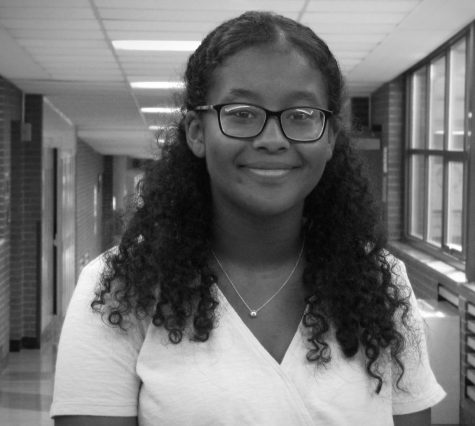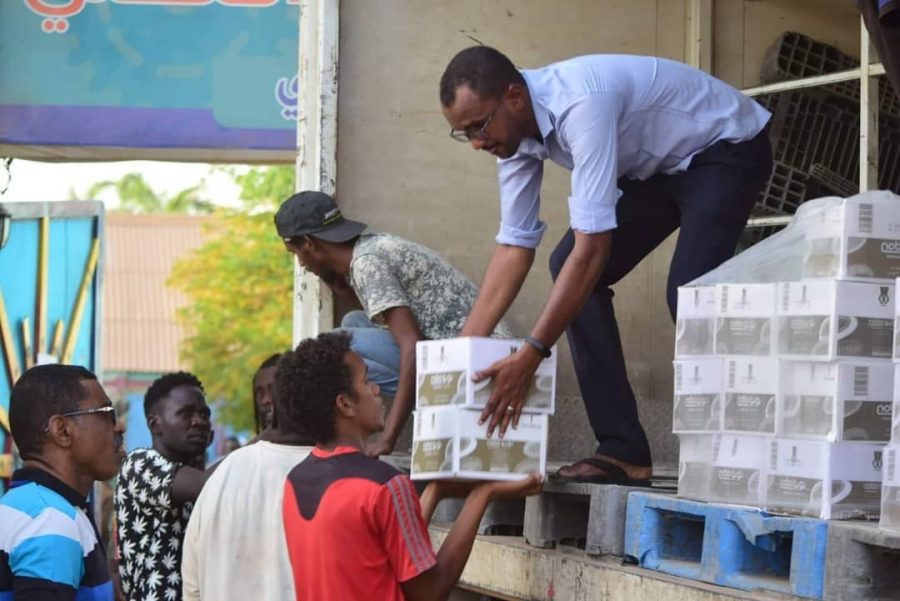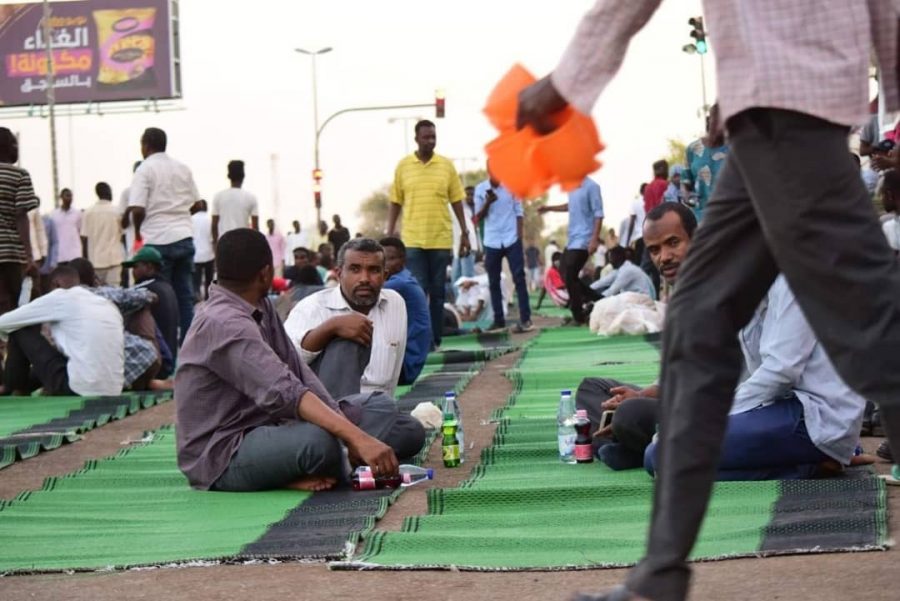Never Again? My Take on the Crisis in Sudan
Being that staff writer Lamees Subeir’s family is from Sudan, she feels compelled to inform the NAI community about crises such as this one
Volunteer in Khartoum (Sudan’s capital) hands out water in May 2019 to aid those affected by crisis.
A popular phrase in Holocaust education is “Never Again,” which means to use the tragedy of the Holocaust to try to prevent such an atrocity from ever happening again. Volumes of books have been written about it. Survivors continue to tour the country to tirelessly advocate for tolerance.
However, tragedies seem to keep happening. We constantly see tragedies that could have been avoided:
- Utoya, Norway, 2011- 69 killed
- Pibor, South Sudan, 2012- 900-3,141 killed
- Juba, South Sudan, 2013- 240 killed (at least)
- Mali, 2019- 160 killed
- Orlando, Florida, United States, 2016- 49 killed
The thing is, these situations are not always what they seem, as people don’t always have the full background. A prime example is the crisis that happened in my home country, Sudan, this past June.
The problems with the Sudanese government have been ongoing for a while now. England ruled and colonized Sudan from 1899-1956, after multiple governments ruled the African country. The former Sudanese government, headed by former President Omar Al-Bashir, took over in June 1989 by military force.
Al-Bashir ruled for about 30 years, with many unsuccessful uprisings trying to remove him from power and hand over government control to civilians. Now most people have heard of the June 3rd killings that happened because of these uprisings, but they may not know that the protests started in December 2018. There were almost daily protests in the month of December, with tear gas being thrown into crowds and Janjaweed soldiers beating people, often to death. The June 3rd killings, where at least 300 people were killed (the government reported less than 100) were the tipping point of something that had been brewing for almost a year.
The government did give in, with not one, but two presidents resigning over the course of two days with a Transitional Military Council put in place. A civilian-majority ruling council was sworn in on August 21, replacing the TMC. Asma Abdalla Hamdok was one of those sworn in, becoming the first female foreign minister. The first Christian woman to be part of the Muslim majority government was also sworn in on August 21.
What most people don’t realize is that Sudan, or at least its capital Khartoum, isn’t as people expect. It is an impoverished desert country where people live in huts, and there is no civilization. Sudan is instead beautiful in quiet ways. I’ve never lived there, but I visit almost every summer, and a lot of people have normal lives.
They go to work, they get home and eat dinner with their family every day, and they attend weddings (a lot of weddings. Seriously, a lot of weddings).
In houses, one can see the colorful fabrics of the national dress, the toub. Drive by the Nile River, and you’ll see families and friends having their afternoon tea. A huge aspect of the Sudanese people is hospitality, so don’t ever try to leave someone’s house without drinking tea, having three different desserts, and eating a full meal.
Potential measures that could have improved the situation were not always taken. For example, the protesters and civilians had almost no foreign aid, especially not from major countries. The United Nations pulled many employees previously located in Sudan. Even after the June 3rd killings, barely any outside help was received.
Can we ever be sure that tragedy will not happen in Sudan? Can we be sure that the former government will never become unfair again, and that the former government will never try to take over again? No, that’s the sad part of all of these situations. They can happen again, but I hope the world tries to take the necessary measures to prevent something like this from ever happening again.
On social media, people were slow to start sharing information about these protests at first, but soon many people were sharing information and voicing their support for the Sudanese protesters on social media. Thousands of Instagram accounts changed their profile pictures to blue in support of Mohamed Hashim Mattar, an artist killed on June 3rd. In spite of this support, so many people have asked me what affect media awareness would have on the actual situation.
In Mali, there have been many massacres this year by different terrorist groups. The biggest massacre was in Dogon, where 95 were killed, and the massacre in Ogossagou, where more than 130 people were killed. Continually, it seems that, even with ample access to information, people in the so-called “first world” are not empathetic about situations in the “third world.”
These people thought they shouldn’t say anything about the killings and the unfair government system because their post wouldn’t “do anything.” Well, one person’s post might educate people on the situation so that they are not spreading false facts. Will it solve the situation? No, not even close.
We seemingly live in a time of fiction. People care more about Antonio Brown than humanitarian crises. Does that bother anyone? It should, because we need to get out of the comfortable bubble we’re living in, or at least try to see through it, we can start taking steps to ensure these tragic events don’t happen again.

Lamees Subeir is a sophomore at NAI, and it's her second year on the NAEye newspaper. She is a Co-Editor-In-Chief. She enjoys writing about current events,...




